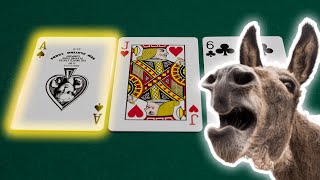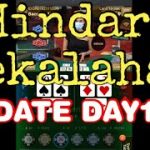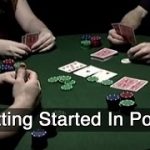Learn Poker Video Source & Info:
Ace-high flops are the most common type of flop in the game, but they certainly aren’t the easiest to play correctly. Many poker players use an over-simplified strategy on these flops, playing all Ace-high flops very similarly, but that is far from the best way to play them. Instead, you must consider the subtle factors that separate one Ace-high flop from the next and how those factors should impact your strategy.
Learn those subtle factors and the strategies you should use on Ace-high boards from Mike Brady and Gary Blackwood in this episode of Upswing Poker Level-Up.
Pre-register for the upcoming Road to Victory tournament course by Darren Elias and Nick Petrangelo: https://upswingpoker.com/road-to-victory-pre-reg
You can listen to the audio version of this show wherever you get your podcasts. Direct links are here: https://upswingpoker.com/podcast/
Check out the written version of this show: https://upswingpoker.com/podcast/ep14-ace-high-flops/
If you really want to take your poker skills to the next level, head over to http://upswingpoker.com. Upswing has hundreds of free articles, free quizzes, affordable crash courses, and advanced training courses that will help you get better at poker. Learn poker strategy from the world’s top players at http://www.upswingpoker.com/
Source: YouTube








About BTN vs BB, this overbet sizing on a AKX type board is something I'm going to try. Except if I have top set AA because I block his calling range, but with KK, AQ, AJ AT and some KQ, KJ,QJ,….
Why don't you teach Doug to stop being a sociopath?
ace high flops are the most common flop? how is that true? or do you mean theyre studied the most or something?
If possible I would like to see something about playing A high board oop or even better playing oop in general. I know in 6 max is not so frequent because generally only the button flat call (in any case you still play oop as pfr sometimes). In live cash game playing oop is really frequent, even at relative "high" stakes like 5/10 or 10/20. It would be nice to kearn something about this topic (another interesting one is multiway pots). Thanks.
Thank you for this video! At 17:08 you say we don't overbet AJx/ATx boards from MP but we do make these overbets from BTN because we have less nut advantage from MP. I would think that we have more nut advantage on an MP open (higher percentage of A's in range) than a BTN open since our MP open range is tighter. How am I wrong?
Thanks for the shoutout!
Fwiw I think we bet big on AKx boards because our marginal hands don't benefit from equity denial. So our AJ+ region is free to bet their natural size (an overbet).
Whereas on boards like A82, hands like 8x are more inclined to bet for protection. This makes us want to size down even when we have a very strong hand, so that our small bet range is not overly weak.
I have always been uncertain to use smaller bet sizes when it comes to micro stakes poker. The reason is that the amounts that people are playing with and the skill level of the opponents in some cases make it imo irrelevant if the bet is 33% or 50%. My thought process is that you might as well bet 50% pot because for example in nl20 the difference of the two bets on the flop is going to be so small maybe 10 cents that to the opponent the size difference won't matter. Also a small bet 33% or less is going to be such a small bet that the opponent isn't going to fold anything against that bet. In higher stakes games for example if the pot is 100usd to me it makes a difference if the opponent bets 33 usd or something like 60 usd. I don't know if this makes sense.
tanner fox went from scooters to poker huh?
I've watched hundreds of poker videos, and you guys are the best. Thanks, and keep it up please !
great video but maybe turn up ur mics a little bit for future videos? am i the only one having trouble hearing what they are saying?